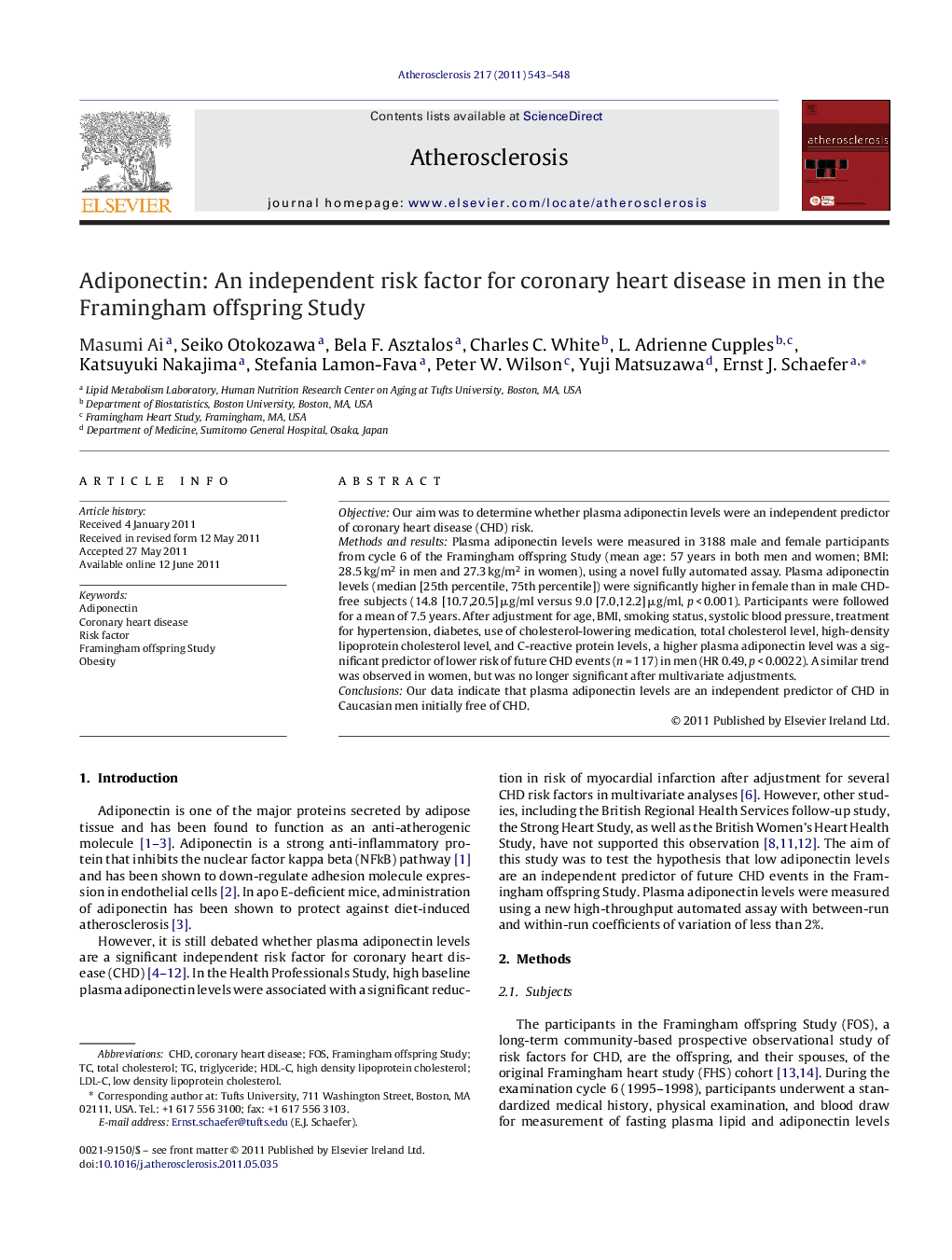| Article ID | Journal | Published Year | Pages | File Type |
|---|---|---|---|---|
| 2892812 | Atherosclerosis | 2011 | 6 Pages |
ObjectiveOur aim was to determine whether plasma adiponectin levels were an independent predictor of coronary heart disease (CHD) risk.Methods and resultsPlasma adiponectin levels were measured in 3188 male and female participants from cycle 6 of the Framingham offspring Study (mean age: 57 years in both men and women; BMI: 28.5 kg/m2 in men and 27.3 kg/m2 in women), using a novel fully automated assay. Plasma adiponectin levels (median [25th percentile, 75th percentile]) were significantly higher in female than in male CHD-free subjects (14.8 [10.7,20.5] μg/ml versus 9.0 [7.0,12.2] μg/ml, p < 0.001). Participants were followed for a mean of 7.5 years. After adjustment for age, BMI, smoking status, systolic blood pressure, treatment for hypertension, diabetes, use of cholesterol-lowering medication, total cholesterol level, high-density lipoprotein cholesterol level, and C-reactive protein levels, a higher plasma adiponectin level was a significant predictor of lower risk of future CHD events (n = 117) in men (HR 0.49, p < 0.0022). A similar trend was observed in women, but was no longer significant after multivariate adjustments.ConclusionsOur data indicate that plasma adiponectin levels are an independent predictor of CHD in Caucasian men initially free of CHD.
